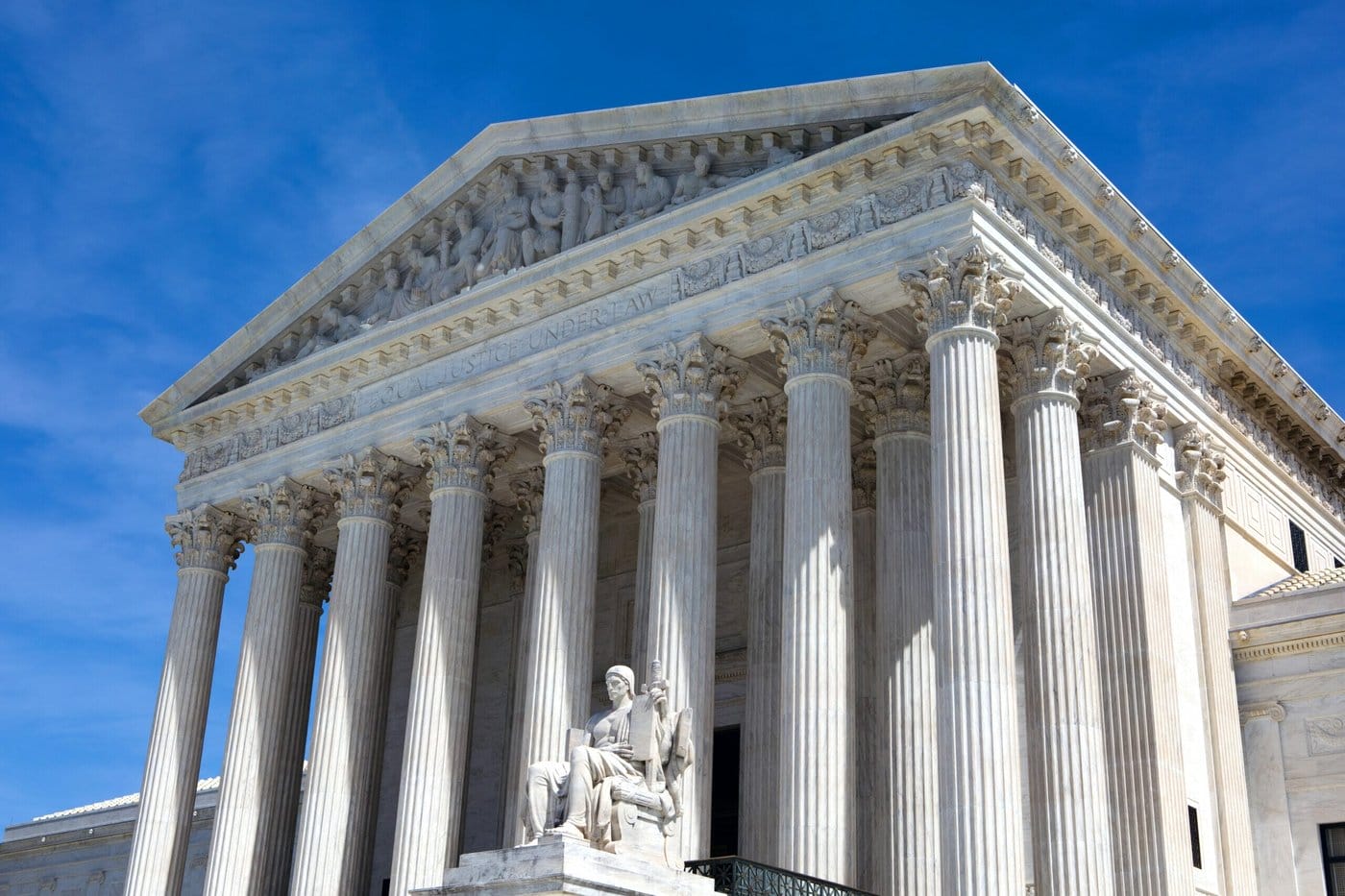
The U.S. Supreme Court heard oral arguments in a pair of cases last week that will determine whether the federal government can lock up non-criminal immigrants in jail for months or even years while they wait for their immigration hearings.
The two cases stem from parallel rulings in the Third and Ninth Circuit Courts of Appeal that found that the federal government must hold hearings for non-citizens with final deportation orders who are still in government custody after six months, rather than keeping them locked up indefinitely while the government processes their requests for deportation relief. The Supreme Court ruled in 2001 that the government must provide bond hearings for detainees after six months if their deportation isn’t “reasonably foreseeable.”
With the immigration court backlog now over 1.5 million cases, many immigrants – the majority of whom have committed no crime and are no threat to their communities – can spend months or even years in detention waiting for their hearings. The average wait for a hearing date at the end of December 2020 was 1,642 days, or about 4.5 years, with the time to complete court cases nearly doubling in 2021. This means that more immigrants will be held in unsafe detention centers and prisons for even longer as they wait for their hearings.
Unlike the criminal courts, many Constitutional rights and principles are not available to people in the immigration courts. The immigration system contains almost none of the procedural safeguards found in the U.S. justice system: immigrants facing deportation have no right to a government-appointed lawyer and no right to a speedy trial, while also facing harsh retroactive laws (what the U.S. Constitution prohibits as ex post facto laws), limited Fourth Amendment search and seizure protections, and virtually no rules of evidence to prevent the government from using otherwise inadmissible evidence in court.
It’s important to note, however, that individuals in removal proceedings in immigration court are subject to a civil process – immigration violations are a “civil” and not a “criminal” matter. Since the late 1800s the Supreme Court has said that “deportation is not a punishment for crime. It is not a banishment… It is but a method of enforcing the return to his own country of [a noncitizen] who has not complied with the conditions” required to stay in the United States.
However, whether the Supreme Court views deportation as a punishment or not, it has long held that when it comes to depriving someone of their liberty, be it jail as punishment for a crime or civil detention pending an immigration hearing, it is a fundamental requirement of due process under the Constitution that that person receive a hearing before a neutral decision-maker to decide if their imprisonment is justified.
Though a couple of the Justices seemed skeptical of the government’s argument that no opportunity to be released from detention needs to be offered to immigrants locked up awaiting hearings, some pro-immigrant advocates fear that the Court’s conservative majority makes a ruling in favor of immigrants unlikely.
The two cases are Johnson v. Arteaga-Martinez, No. 19-896, and Garland v. Gonzalez, No. 20-322. Both cases are expected to be decided by summer 2022.